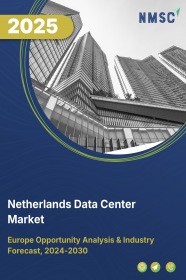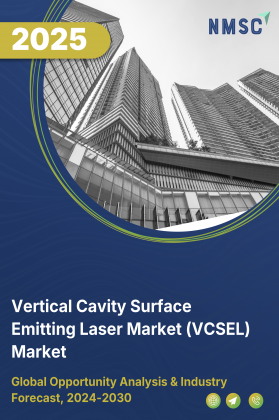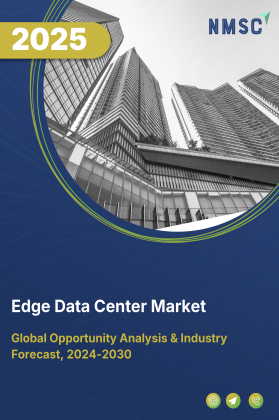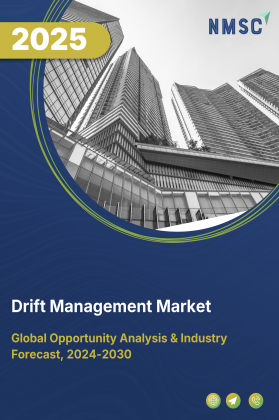
Netherlands Data Center Market by Infrastructure (Hardware, Software, and Services), by Type (Enterprise Data Centers, and others), by Data Center Rating (Tier I, and others), by Size (Small Data Centers, and others), by Power Capacity (<0.01 GW, 0.01-0.05 GW, 0.05-0.1 GW, 0.1-0.5 GW, and >0.5 GW), by Server Rack Density (<10kW, and others), by Data Center Redundancy (N+1, and others), by PUE Outlook (Less than 1.2, and others), and Others - Opportunity Analysis and Industry Forecast, 2024–2030
Industry: ICT & Media | Publish Date: 24-Oct-2025 | No of Pages: 243 | No. of Tables: 196 | No. of Figures: 121 | Format: PDF | Report Code : IC2428
Netherlands Data Center Market Overview
The Netherlands Data Center Market size was valued at USD 6.34 billion in 2023, and is predicted to reach USD 17.17 billion by 2030, at a CAGR of 15.3% from 2024 to 2030.
The data center market, often referred to as the network infrastructure market, encapsulates the entire spectrum of specialized infrastructure tailored for the hosting of computing systems, encompassing phases from planning and construction to operation and maintenance.
This intricate ecosystem comprises diverse components such as servers, storage systems, and networking gear, delivering an array of services including cloud computing and connectivity solutions. Presently, the industry witnesses a widespread uptake of cloud services, coupled with the emergence of edge computing to mitigate latency issues.
Noteworthy trends within the sector encompass a heightened emphasis on sustainability, elevated concerns surrounding cybersecurity, the amalgamation of hybrid and multi-cloud strategies, and the transformative impact of 5G networks.
These trends underscore the industry's proactive response to meet the surging demand for scalable, efficient, and secure data processing and storage solutions amidst the ongoing digital revolution. With projections from the United States International Trade Commission foreseeing substantial growth, from USD 56 billion in 2020 to USD 90 billion by 2025, the data processing and storage market showcases significant potential for expansion and innovation in the years ahead.
Netherlands Geostrategic Location and EU Data Sovereignty
The Netherlands holds a pivotal position within Europe’s digital infrastructure, serving as a major gateway for international data traffic through its well-established submarine cable networks and dense interconnection hubs. Amsterdam, in particular, is one of Europe’s largest internet exchange points, making the country a central hub for global cloud providers, enterprises, and digital platforms seeking high-capacity, low-latency connectivity.
As a member of the European Union, the Netherlands also adheres to strict data privacy frameworks such as GDPR, offering strong assurances on data sovereignty and regulatory compliance. This combination of strategic location, advanced connectivity, and robust governance makes the country a preferred destination for organizations that prioritize secure, EU-based storage and processing of sensitive information.
Netherlands Temperate Climate and Renewable Integration Support Energy Efficiency
The Netherlands’ temperate climate, while not as cold as Nordic nations, allows for partial reliance on natural cooling and free-air systems, reducing the energy load required for traditional mechanical cooling. This contributes to better operational efficiency and lower power usage effectiveness (PUE) ratios compared to warmer European regions, giving Dutch facilities a cost advantage in long-term operations.
In addition, the Netherlands is aggressively integrating renewable energy into its data center ecosystem, leveraging offshore wind, solar projects, and energy reuse initiatives. Many operators are collaborating with district heating networks to recycle excess heat, ensuring sustainability targets are met while supporting the nation’s climate neutrality goals. This positions the Netherlands as a frontrunner in aligning digital infrastructure growth with green energy adoption.
Netherlands Rising Energy Costs and Regulatory Pressures Constrain Growth
Despite its strong digital foundation, the Netherlands data center market faces challenges from rising electricity costs and growing pressure on the national grid. Securing sufficient and sustainable power capacity has become increasingly difficult, particularly in high-demand regions such as Amsterdam, where local authorities have previously imposed moratoriums on new data center permits due to energy and land use concerns.
Furthermore, regulatory scrutiny over environmental impact and power consumption is intensifying. Operators must meet stringent efficiency and sustainability requirements, which increases capital and operational costs. For smaller and mid-tier providers, these factors create barriers to market entry and limit flexibility, slowing the pace of new development in an otherwise rapidly expanding sector.
Netherlands Edge and AI Workloads Accelerating Regional Data Center Expansion
The surge in edge computing and AI-driven workloads is reshaping the Netherlands data center landscape. Applications in smart logistics, fintech, healthcare, and autonomous technologies demand ultra-low latency infrastructure distributed closer to end users. Edge facilities are emerging across regional hubs, complementing Amsterdam’s hyperscale dominance and ensuring balanced, resilient capacity nationwide.
Artificial intelligence and machine learning workloads are also driving higher rack densities and power demands, prompting operators to adopt advanced cooling and modular infrastructure solutions. With strong digital ecosystems and ongoing investments in 5G and AI research, the Netherlands is positioned to become a key European hub for decentralized, high-performance data infrastructure.
Competitive Landscape
The key market players operating in the Netherlands data center industry include Digital Realty Trust Inc., Equinix Inc., CyrusOne Inc., EdgeConneX, Iron Mountain Incorporated, Microsoft (Azure), AtlasEdge, NTT (via e-shelter), Cogent Communication, Penta C.V., Global Switch Holdings Limited, Switch Datacenters, Dataplace (Eurofiber), Keppel Data Centres Pte Ltd., QTS Realty Trust, Inc., Leaseweb, NorthC Data Centers, Google, Serverius, Bytesnet and others.
Netherlands Data Center Market Key Segments
By Infrastructure
-
Hardware
-
IT Hardware
-
Servers
-
Storage Systems
-
Networking Equipment
-
-
Power Infrastructure Hardware
-
Uninterruptible Power Supplies (UPS)
-
Generators
-
Automatic Transfer Switches
-
Power Distribution Units (PDUs)
-
-
Mechanical Infrastructure Hardware
-
Computer-Room Air Conditioners (CRAC/CRA Units)
-
Chillers
-
Racks
-
Cable Management Systems
-
-
Safety & Security Hardware
-
Fire Suppression Systems
-
Physical Security Systems (CCTV, access controls)
-
-
-
Software
-
DCIM & Monitoring
-
Automation & Orchestration
-
Backup & Disaster Recovery
-
Security Software
-
Virtualization Software
-
Analytics & Reporting Software
-
Other Software
-
-
Services
-
Planning & Professional Services
-
Site & Building Design
-
System/Infrastructure Engineering
-
Professional Advisory (compliance, energy audits)
-
-
Integration & Deployment Services
-
Electrical & Mechanical Installation
-
Commissioning & Acceptance Testing
-
-
Operation & Support Services
-
Preventive & Corrective Maintenance
-
Facilities Management / Remote Monitoring
-
Support Services (helpdesk, onsite SLA support)
-
-
Hosting & Managed Services
-
Colocation & Cloud Hosting Services
-
Virtual/Private Hosting Platforms
-
-
By Type
-
Enterprise Data Centers
-
Colocation Data Centers
-
Cloud Data Centers
-
Hyperscale Data Centers
-
Edge Data Centers
-
Micro Data Centers
-
Others
By Data Center Rating
-
Tier I
-
Tier II
-
Tier III
-
Tier IV
By Size
-
Small Data Centers
-
Med-sized Data Centers
-
Large Data Centers
By Power Capacity
-
<0.01 GW (Small)
-
0.01-0.05 GW (Medium)
-
0.05-0.1 GW (Large)
-
0.1-0.5 GW (Hyperscale)
-
>0.5 GW (Mega-campus)
By Server Rack Density
-
<10kW
-
10-19kW
-
20-29kW
-
30-39kW
-
40-49kW
-
>50kW
By Data Center Redundancy
-
N (No Redundancy)
-
N+1 (Single-fault tolerant)
-
N+2 (Dual-fault tolerant)
-
2N (Full duplication)
-
2N+1 (Concurrently maintainable + extra spare)
-
3N/2N+2 (Multi-backup fault tolerant)
By PUE Outlook
-
Less than 1.2
-
1.2 - 1.5
-
1.5 - 2.0
-
Greater than 2.0
By Design Outlook
-
Traditional
-
Containerized
-
Modular
By End User
-
Cloud Service Provider
-
Technology Provider
-
Telecom
-
Healthcare
-
BFSI
-
Retail & E-commerce
-
Entertainment & Media
-
Government
-
Energy
-
Others
Key Players
-
Digital Realty Trust Inc.
-
Equinix Inc.
-
CyrusOne Inc.
-
EdgeConneX
-
Iron Mountain Incorporated
-
Microsoft (Azure)
-
AtlasEdge
-
NTT (via e-shelter)
-
Cogent Communication
-
Penta C.V.
-
Global Switch Holdings Limited
-
Switch Datacenters
-
Dataplace (Eurofiber)
-
Keppel Data Centres Pte Ltd.
-
QTS Realty Trust, Inc.
-
Leaseweb
-
NorthC Data Centers
-
Google
-
Serverius
-
Bytesnet
Report Scope and Segmentation
|
Parameters |
Details |
|
Market Size in 2023 |
USD 6.34 Billion |
|
Revenue Forecast in 2030 |
USD 17.17 Billion |
|
Growth Rate |
CAGR of 15.3% from 2024 to 2030 |
|
Analysis Period |
2023–2030 |
|
Base Year Considered |
2023 |
|
Forecast Period |
2024–2030 |
|
Market Size Estimation |
Billion (USD) |
|
Growth Factors |
|
|
Companies Profiled |
20 |
|
Market Share |
Available for 10 companies |
|
Customization Scope |
Free customization (equivalent up to 80 working hours of analysts) after purchase. Addition or alteration to country, regional, and segment scope. |
|
Pricing and Purchase Options |
Avail customized purchase options to meet your exact research needs. |

















 Speak to Our Analyst
Speak to Our Analyst

























